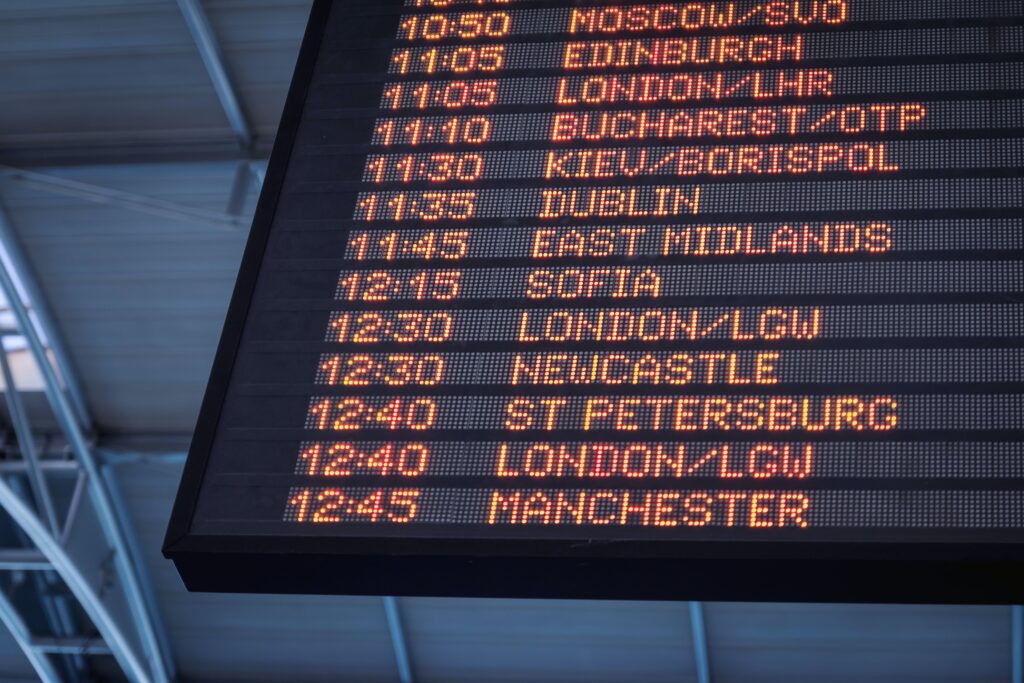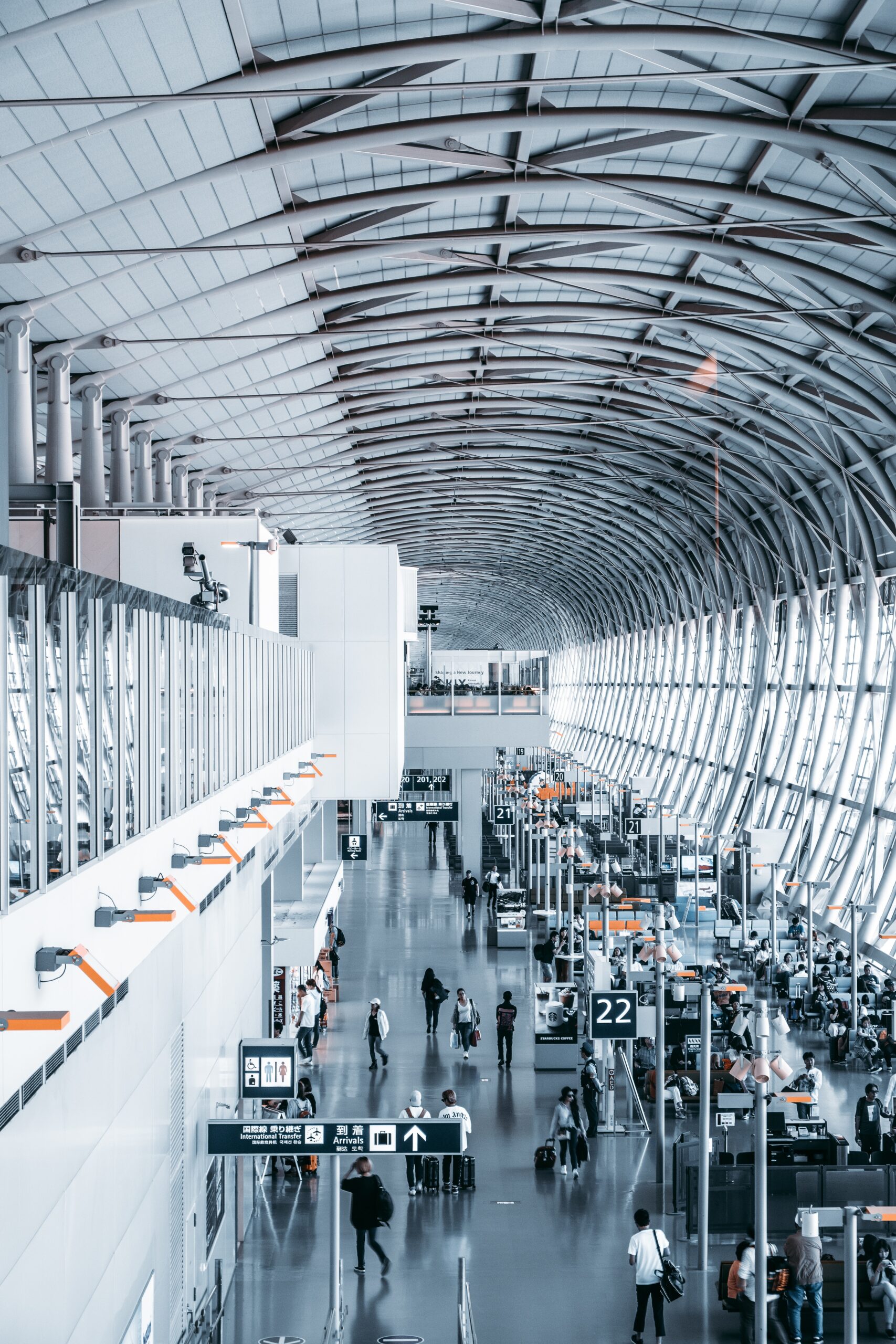Lesotho Transportation Guide
Lesotho Transportation Guide: Transportation relies on winding mountain roads. Utilize minibus taxis or hire 4x4s for scenic drives through the highlands.


Lesotho Transportation Guide – International Airports
Lesotho has one international airport:
Moshoeshoe I International Airport (IATA: MSU): Located in the capital city, Maseru, this is the main international gateway to Lesotho. It’s named after Moshoeshoe I, the founder of the Basotho nation. While it primarily serves domestic flights, there are also international flights connecting Maseru to destinations in neighboring countries, particularly South Africa.
National Airports
Lesotho has a few national airports and airstrips, although not all of them have regular scheduled passenger services. Here are some of the national airports and airstrips in Lesotho:
Matsieng Airport (IATA: MFC): Located near Maseru, the capital city, Matsieng Airport is one of the busiest airports in Lesotho. It serves both domestic and occasional international flights.
Mosehoeshoe II International Airport (IATA: HLE): While it has “International” in its name, this airport primarily handles domestic flights and some regional flights to destinations in South Africa.
Thaba-Tseka Airport (IATA: THB): Thaba-Tseka Airport is located in the district of Thaba-Tseka in central Lesotho. It primarily serves the local population in that region.
Mokhotlong Airport (IATA: MKH): Mokhotlong Airport serves the district of Mokhotlong in the northeastern part of Lesotho. Like many of Lesotho’s airports, it primarily handles domestic flights.
Quthing Airport (IATA: UTG): Quthing Airport is located in the district of Quthing in southern Lesotho. It serves the local population in that area.
Butha-Buthe Airport (IATA: SHK): Butha-Buthe Airport is situated in the Butha-Buthe district in northern Lesotho. It provides access to this region.
Airstrips: In addition to the above airports, Lesotho has several airstrips in various parts of the country, which are often used for smaller aircraft, including those for medical and humanitarian purposes.
Lesotho Transportation Guide – Trains
Lesotho does not have a comprehensive passenger train network. The country does not have an operational passenger railway system, and there are no regular passenger train services available for transportation within Lesotho.
However, Lesotho’s neighbor, South Africa, has an extensive railway network, and some travelers may use train services in South Africa to access Lesotho. For example, you can take a train to the border town of Maseru in South Africa and then continue your journey into Lesotho by other means of transportation, such as buses or taxis.


Lesotho Transportation Guide – Buses
Buses are a common mode of transportation within Lesotho, and they play a vital role in the country’s transportation infrastructure. Here are some key points about buses in Lesotho:
Public Transport: Lesotho has a network of public buses that operate in both urban and rural areas, connecting towns and villages across the country. These buses are an essential means of transportation for many Basotho (the people of Lesotho).
Minibus Taxis: Minibus taxis are a popular mode of transportation for short and medium distances within Lesotho. These are typically small vans or minibuses that follow specific routes and can be flagged down at designated stops. They are known for their flexibility and affordability.
Interurban Buses: For longer journeys between towns and cities, there are interurban buses that operate scheduled services. These buses are a more comfortable option for traveling longer distances within Lesotho.
Cross-Border Services: Some bus services also provide cross-border transportation between Lesotho and neighboring countries like South Africa. These services are commonly used by travelers going to and from South Africa.
Bus Stations: Major towns and cities in Lesotho, such as Maseru (the capital), have bus stations or terminals where passengers can find information about routes, schedules, and ticketing.
Informal Transport: In addition to formal bus services, there is also a network of informal or shared taxis and vans that provide transportation services within Lesotho. These are often operated by private individuals and may not follow fixed schedules.
Hitchhiking: Hitchhiking is a common practice in Lesotho, especially in rural areas where formal transportation options may be limited. Many Basotho are accustomed to giving and receiving rides from strangers.

We recommend
Lesotho travel tips
Our guide offers essential Lesotho travel tips and insights for an unforgettable journey. Plan your trip with us!
Lesotho Transportation Guide – SIM Cards
Lesotho Travel SIM Card Guide:
Availability: Purchase SIM cards at airports, kiosks, or official stores. Ensure your phone is unlocked for compatibility.
Registration: Registration may be required; have your passport ready. The process is usually quick and straightforward.
Top-Up Options: Recharge with airtime vouchers available at stores, online, or through mobile apps provided by the telecom companies.
Data Packages: Explore prepaid data plans for internet access. Providers offer various packages to suit your data needs during your stay.
Network Quality: Vodacom and Econet generally provide good coverage. Confirm coverage in your specific travel areas.
Roaming Considerations: Check international roaming rates with your home provider. Using a local SIM can be more cost-effective for an extended stay.
Mobile Banking: Some providers offer mobile banking services linked to your SIM. Explore these options for convenient transactions.
Dual SIM Phones: Consider using a dual SIM phone to keep your home SIM active for calls while using a local SIM for data.
Validity Period: Be aware of the validity period of your SIM card; recharge as needed to keep it active.
Internet Speeds: Lesotho’s urban areas generally have good internet speeds, but remote locations may have slower connectivity.
Customer Service: Save customer service contact details for your chosen provider in case you encounter issues or need assistance.
Public Wi-Fi: While available in urban areas, rely on your local SIM for consistent and secure internet access, especially in remote locations.
SMS Alerts: Providers may send notifications about data usage and promotions. Keep an eye on these to manage costs effectively.
Time Zone Differences: Check your phone’s time settings, as Lesotho may be in a different time zone than your home country.
Currency Converter
Currency Converter EUR/USD: Sat, 7 Jun.
Unit Converter
Lesotho Transportation Guide – Maps
What map do you need?
Choose your destination
More information about this country







